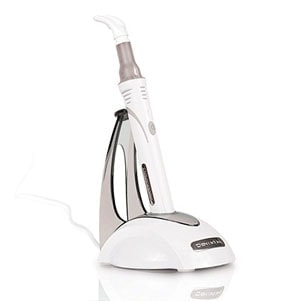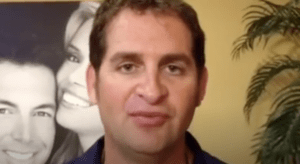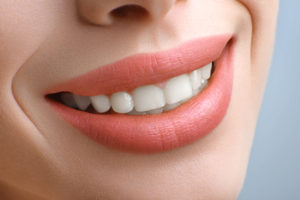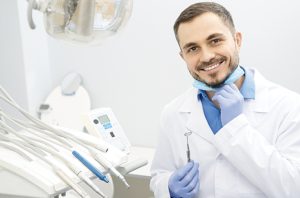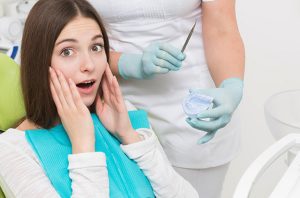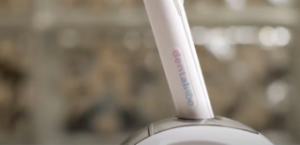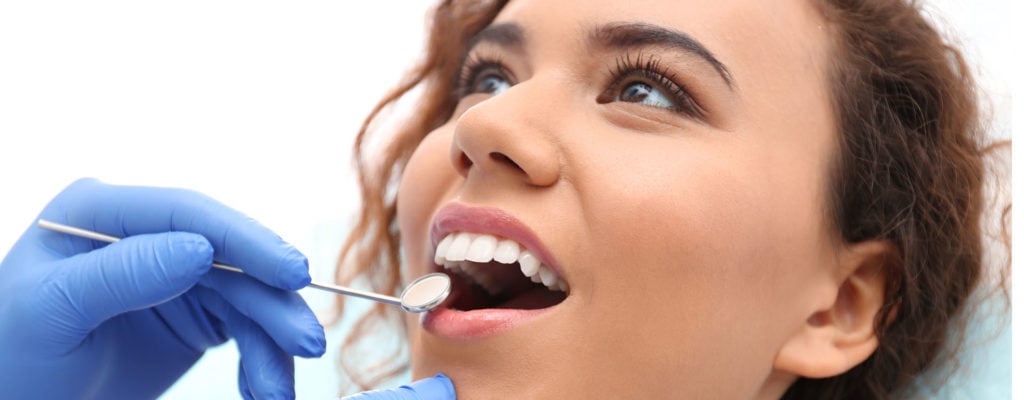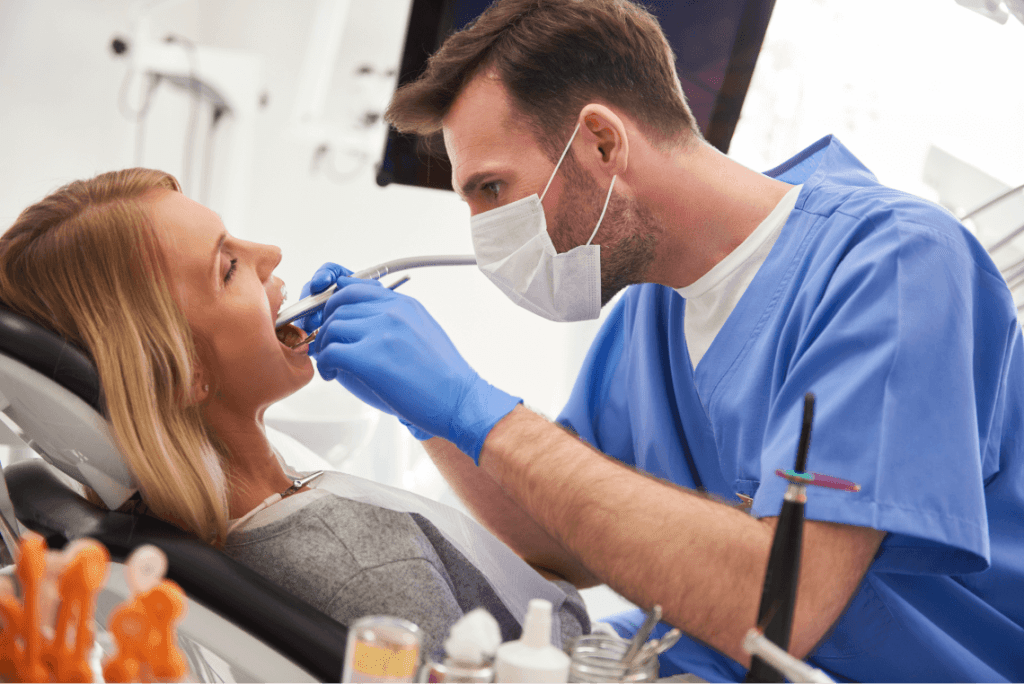Practicing healthy dental habits such as brushing, flossing, and visiting your dentist will go a long way towards keeping your smile healthy. But it’s also important to avoid bad habits that damage your teeth.
What can damage your teeth?
Most people know that sugary foods, coffee, and smoking can cause damage to their teeth. Some other habits that can harm your dental health aren’t as obvious. Overbrushing, eating ice, biting your nails, and grinding your teeth are also bad habits that should be avoided in order to protect your teeth. Take a look at fifteen things that you may be doing without realizing the effect they could be having on your oral health.
1. Brushing your teeth too hard
If you’re using a hard-bristled toothbrush or pressing too hard, you may be overdoing your tooth brushing. Avoid damaging your teeth or gums by choosing a soft-bristled toothbrush. Brush your teeth gently using a broad stroke and a circular motion.
2. Biting your nails
Many people bite their nails when they are nervous or pick up the habit as children and find it difficult to stop. If you need an added incentive to stop nail-biting, consider your dental health. This habit can cause damage to the jaw and teeth. Nail-biting causes you to hold your jaw in an unnatural position and can even chip your teeth. To prevent nail-biting, try painting your nails with a nail polish designed for this purpose.
3. Chewing ice
You may sometimes find yourself absentmindedly chewing on ice after finishing a refreshing drink. To avoid a broken tooth or filling, it’s best to drink through a straw or have your drink without ice. This will help you kick the habit.
4. Teeth grinding
Do you find yourself clenching your teeth together when you’re stressed or grinding your teeth in your sleep? These behaviors are usually a subconscious reaction that in the long term will damage teeth, cause muscle pain, and may even result in jaw problems. To stop this harmful habit, try relaxation exercises or talk to your dentist about getting a nighttime mouthguard. Also, try to be aware of the situations that cause clenching or grinding and take steps to manage or minimize them.
5. Smoking
Tobacco can be harmful to your oral health, whether you smoke or chew tobacco. Tobacco causes staining, gum disease, a dry mouth, bad breath, tooth decay, and in the worse cases, oral cancer. If you’re having problems giving up smoking, seek professional help.
6. Thumb sucking
Many babies suck their thumbs without issues, but problems may arise if this habit continues beyond the age of five.
Thumb sucking can cause misaligned teeth and severe dental problems. If your child is over five and finds it challenging to stop thumb sucking, ask your dentist for advice.
7. Using toothpicks
Contrary to popular belief, using toothpicks can cause more harm than good. While removing food debris seems like a good idea, poking around in your mouth with a sharp object can lead to damaged or infected gums. It’s best to replace wooden or plastic toothpicks with floss or a dental cleaning tool.
8. Misusing your teeth
Do you often find yourself holding things in your mouth? Or using your teeth to “cut” tape or to bite open a package? Many people use their mouths as an extra hand on occasions. Each time you do this, you’re risking jaw injury or cracked teeth. It’s best to take the extra time to find some scissors or ask someone to help. Your teeth will thank you for it in the long run.
9. Drinking soda, fruit juice or coffee
Regularly drinking sugary or acidic drinks can cause erosion of the tooth enamel. Fruit juice may seem like a healthy option, but it often contains added sugar, and coffee can discolor the tooth’s enamel. Choose a healthier drink such as water, green tea, or black tea. These drinks will strengthen your tooth’s enamel and protect your mouth from bacteria. If your teeth have been stained by coffee or red wine, treat them with whitening methods or talk to your dentist about stain removal.
10. Eating sugary treats
It’s okay to enjoy a sugary snack now and again, but making it a habit can cause tooth decay and gum disease. Sugary snacks between meals feed bacteria in your mouth, leading to tooth decay. Try to eat balanced meals so that you’ll feel fuller for longer and be less likely to reach for those sugary snacks. If you do indulge in a sweet treat, make sure to brush your teeth or drink some water afterward.
11. Avoiding the dentist
It’s essential to have regular check-ups to ensure that your teeth and gums stay healthy. We all live busy lives, but skipping dental appointments can lead to more severe dental problems in the future. Don’t ignore any twinges of pain or other potential dental issues. Prevention is better than cure!
12. Playing contact sports
If you love playing a contact sport, make sure you always wear a mouthguard. Being hit in the mouth during play can cause your teeth to become loose or chipped. You’ll also be at more risk of losing a tooth. When it comes to mouth guards, there are two options: either buy an over-the-counter self-fitting guard or talk to your dentist about getting a mouthguard custom- made.
13. Bedtime bottles
It’s never too early to protect your children’s teeth. Providing a bottle before bedtime, whether juice, milk, or formula, can start to decay new baby teeth. Many babies and young children are accustomed to falling asleep with a bottle in their mouth. This can coat the teeth in sugar overnight. It’s best to give your baby a bottle before they go to sleep, then clean their teeth with a small brush and toothpaste designed for milk teeth.
14. Tongue or lip piercings
Many young people find tongue or lip piercings trendy. But biting down on a metal piercing can cause tooth damage, while lip piercings can rub against the gums. In the worst cases, piercings can lead to tooth loss. Piercings in the mouth and lips are also prone to infections and sores due to bacteria in the mouth. If you’re thinking of getting a piercing, discuss the risks with your dentist beforehand.
15. Cough drops
Cough drops typically contain lots of sugar, and although they are sold in pharmacies and medicine aisles, they aren’t healthy. If you have a sore throat and a cough, cough drops may help, but make sure to brush your teeth well after consumption. Sugar will react with plaque on your teeth, eat away at your tooth’s enamel, and cause cavities. While it’s okay to eat the occasional cough drop, it’s best to consult your doctor if you have a persistent cough.
Avoiding the above bad habits can help you keep your teeth healthy and free from damage. You should also eat a healthy diet, brush your teeth twice daily, floss regularly, and drink plenty of water. It’s a wise idea to book an appointment with your dentist twice yearly for a check-up. Your dentist will give you advice to help keep your teeth and gums healthy and check for symptoms of any potential dental issues before they become major problems.
Find a DentalVibe dentist
Looking for a dentist who offers pain-free dentistry? Our directory of certified pain-free dentists is filled with providers who are committed to providing as close to pain-free dentistry as possible! Find a DentalVibe dentist and make dental anxiety a thing of the past!

